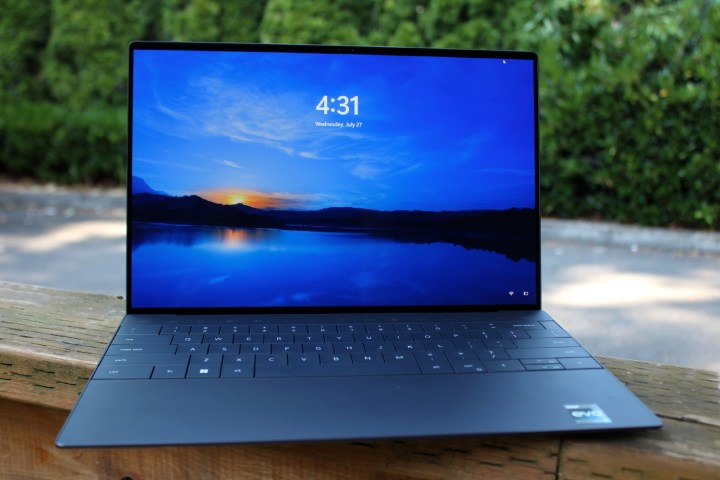
A few years ago, a 4K laptop was unheard of. But today, top manufacturers like Dell, HP, and Lenovo offer a 4K display option across their flagship devices. These upgrades carry a hefty premium, though, so knowing which are the best 4K laptops is important -- and we're here to help.




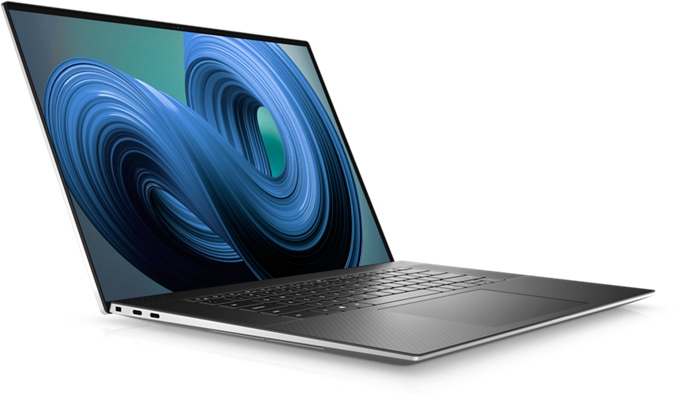
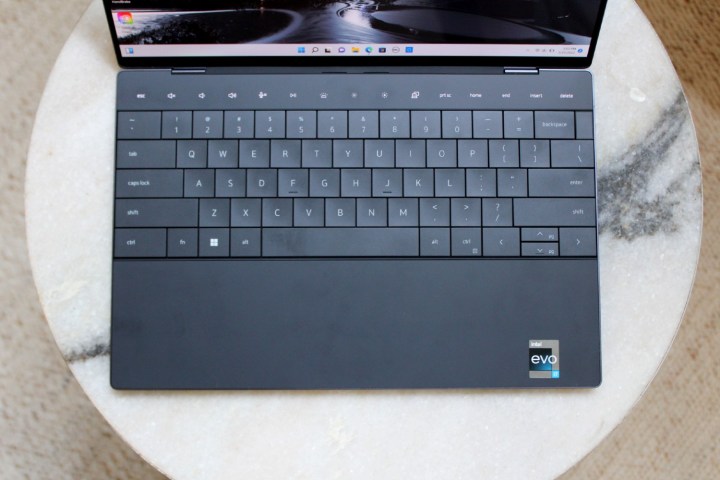
The best 4K laptop
Dell XPS 13 Plus
- Irresistibly fresh design
- Great OLED screen
- Helpful performance modes
- Excellent haptic touchpad
- Webcam has been improved
- Gets warm on the bottom
- No headphone jack
- Battery life less than average
Why you should buy this: The XPS 13 Plus is a killer laptop in every way and looks fantastic with a 4K panel.
Who's it for: Anyone but gamers.
What we thought of the Dell XPS 13 Plus:
The XPS 13 Plus is at the top of our list of the best laptops, so it's perhaps no surprise that the 4K version tops the list of our favorite 4K laptops, too. The latest versions go beyond anything we've seen before from an XPS 13, adding a haptic touchpad and touch-sensitive function "buttons," with a full-size edge-to-edge keyboard with minimal space between keycaps. The the XPS 13 Plus is also one of the best 13-inch laptops.
In our review, we looked at the 3.5K OLED model with an Intel 12th-generation Core i7-1280P processor, 16GB of RAM, and a terabyte of PCIe NVMe SSD storage. But there's also a 4K+ IPS option that, in our experience, also provides outstanding colors with great contrast, support for a wide range of colors, and better color accuracy than most laptops in its bracket. The only caveat to all this is that the 4K+ screen does demand more from the battery.

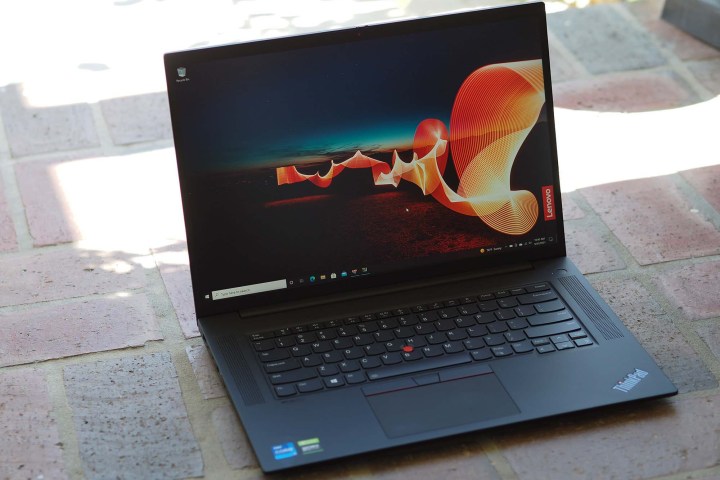
The most powerful 4K laptop
Lenovo ThinkPad X1 Extreme Gen 5
- Excellent build quailty
- Superior entry-level display
- Solid performance
- Good keyboard and touchpad
- Very powerful configuration options
- Performance was inconsistent
- Battery life was middling
Why you should buy this: ThinkPads are amazing work machines, and the X1 Extreme is no different — now with a great 16:10 4K+ screen.
Who's it for: Anyone who wants to maximize screen real estate for work and play.
What we thought of the ThinkPad X1 Extreme Gen 5:
If style is the least of your concerns or you want 4K laptop power in a system that doesn't scream "look at me," the ThinkPad X1 Extreme Gen 5 is what you need. While the X1 Extreme retains the rigidity and sturdy feel of its predecessors, the latest versions have gone on a diet, featuring a sleeker body and lines than the ThinkPads that came before.
Those trimmer bezels help contain a high-contrast 4K+ panel that offers excellent colors and great brightness. Base specs for the UHD model include a 12th-gen, 14-core/20-thread Intel i7-12700H processor, 8GB of RAM, and a 256TB PCIe SSD. The GeForce RTX 3050 Ti is a highly capable GPU as well, creating an ideal setup for more rigorous video editing or esports gaming, and up to an RTX 3080 Ti can be configured.

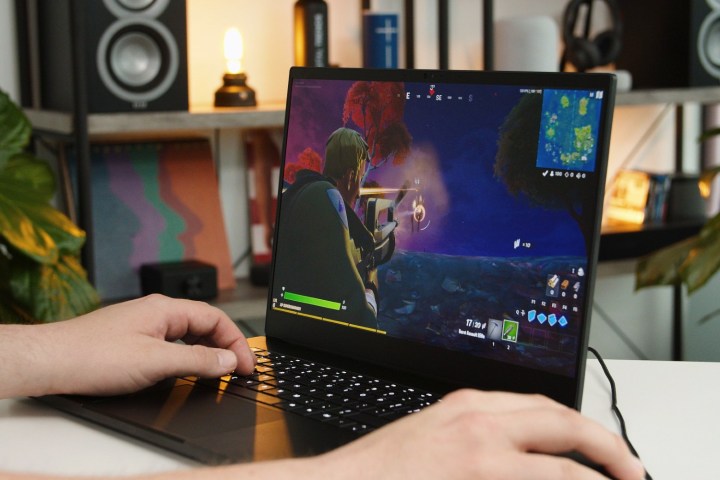
The best gaming 4K laptop
Razer Blade 15 2021
- Sleek design
- Comfortable keyboard and touchpad
- Exceptional gaming experience
- 300Hz refresh rate
- Ideal port selection
- Runs hot
- Very expensive
Why you should buy this: The Blade is an amazing gaming laptop, and 4K really makes the visuals pop.
Who's it for: Gamers and anyone who likes a flashier laptop.
What we thought of the Razer Blade 15 2021:
The Razer Blade 15 is one of the best gaming laptops on the market, and it has been one of our go-to recommendations for gaming on the go for some time. For 4K, you need to step up in price. The most recent Razer Blade 15 supports a 15.6-inch 4K IPS display that's individually calibrated at the factory. The display gives you accurate color as well as 100% coverage of the DCI-P3 color space.
Powering the display is an Nvidia RTX 3080 Ti graphics card, an Intel Core i9-12900H CPU, 32GB of RAM, and a 1TB SSD. This is Razer's most recent offering using the most recent parts. The Razer Blade 15 4K model is locked at 60Hz, so it's not the best for high-speed or competitive games without an external gaming monitor, but there's also a QHD (2560 x 1440) display option with a 240HZ refresh rate if that's important to you.

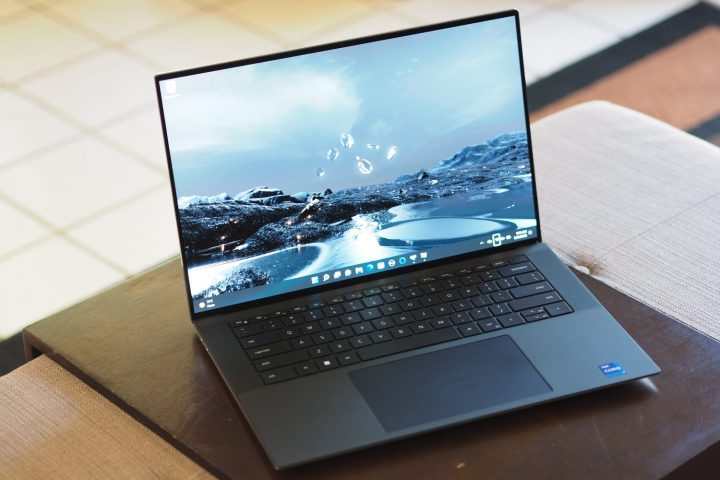
The best 15-inch 4K laptop
Dell XPS 15 9520
- Streamlined and solid build
- Aesthetically perfect
- Strong productivity and creative performance
- Above-average battery life
- Excellent keyboard and touchpad
- Superior OLED display
- Outstanding audio
- Expensive
- Performance ceiling limited by thin chassis
Why you should buy this: It's the XPS 13 Plus but bigger, with more room to enjoy that beautiful 4K screen.
Who's it for: Anyone who wants more than a 13-inch laptop can deliver.
What we thought of the Dell XPS 15:
Larger and more capable, but a little less portable than its smaller sibling, the XPS 15 steals the top spot of our best 15-inch laptops list — and the 4K configuration is one of our favorites. You get a cheaper price and better battery life with the 1080p option, but if you're after that 4K experience, the XPS 15 is one of the best. And the laptop uses the taller 16:10 aspect ratio that's great for productivity.
The XPS 15 has solid performance, thanks to powerful Intel 12th-gen H-series Core i7 and i9 CPUs, up to 64GB of memory, and an Nvidia RTX 3050 Ti graphics chip for decent entry-level gaming capabilities and strong creative application performance. Simply put, this Dell XPS 15 model is fantastic to look at and use and is simply one of our favorite 4K laptops.

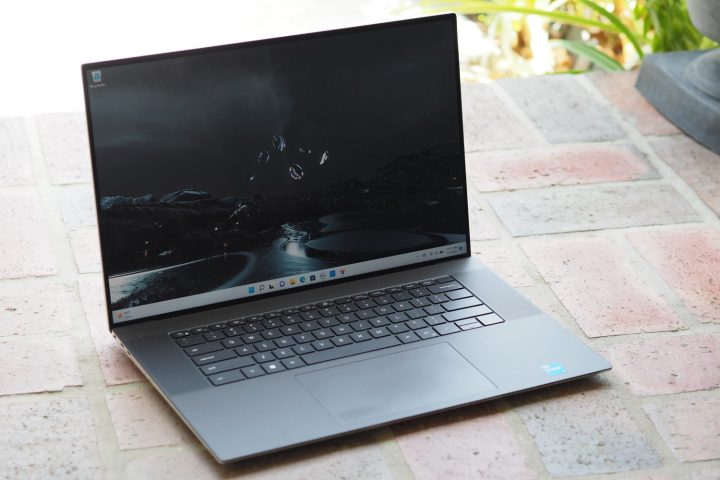
The best 17-inch 4K laptop
Dell XPS 17
- Outstanding build quality
- Streamlined good looks
- Thin and light
- Excellent productivity and creative performance
- Solid midrange gaming performance
- Superior IPS display
- Great keyboard and touchpad
- Expensive
- Limited collection of ports
- Some thermal throttling
Why you should buy this: You need a big, beautiful, and powerful laptop as your daily driver.
Who’s it for: Content creators and hobbyist home users who want extra power.
What we thought of the Dell XPS 17:
A 17-inch laptop might seem crazy in 2022, but the Dell XPS 17 proves that large laptops can be comfortable to use and incredibly valuable to own. Dell has made some stunning displays in its XPS series over the past few years, and the XPS 17 is no exception. With such a large, vivid, and bright display, this is the perfect setup for any professional video editor, really letting you make the most of that 4K resolution — which is arguably wasted on smaller laptops.
The keyboard on this laptop is excellent too, making it as good for responsive keyboard shortcuts as it is for lengthy typing sessions, and even though it's not really designed with gaming in mind, the Nvidia RTX 3060 is a powerful enough GPU that you can easily do some gaming in your downtime, enjoying high frame rates in whatever you play.

Frequently Asked Questions
A 4K (3840 x 2160) display provides a much sharper image, with four times as many pixels as a Full HD (1920 x 1080) display. If you're buying a laptop with a 15.6-inch or larger display, then 4K is well worth considering. Full HD can look a little grainy on larger displays, particularly with regard to text quality. A 4K resolution will ensure that everything's sharp, with text that looks closer to what you'll find on a printed page and images that are closer to the original.
If you're looking at laptops with 14-inch or smaller displays, then 4K is less of a necessity. The smaller the display, the sharper the image — but there's a lower limit to what some people will notice. If you're someone who works with a lot of text or images, however, then you might want 4K even on a display as small as 13.3 inches. You'll enjoy an extremely sharp image where you won't be able to see individual pixels no matter how hard you look.
If you want to watch a 4K video, say via Netflix or Amazon Prime, then you'll need a 4K display. Again, you may not be able to tell the difference on smaller displays, but if you want the best possible quality, then 4K is the only way to go.
There are legitimate reasons to avoid 4K laptops, though. They tend to be more expensive, some older applications don't display well on ultra-high-resolution displays, and 4K displays use more battery life (more on that below).
You'll want to look for the same things in a 4K laptop as you would in a laptop with a lower resolution. Read reviews and make sure that the panel used isn't just 4K but also provides wide and accurate colors and high contrast. Typically, manufacturers use better screens in 4K laptops, so you're more likely to find a good display. And many of today's newest technologies, such as OLED, are mostly used in 4K displays.
Yes, a 4K display does decrease battery life. The display requires more energy to light four times the pixels as Full HD displays, and the graphics system needs to work harder. Reducing the on-screen resolution won't help with battery life, either, because the same number of pixels need to be lit.
We're not just talking about minutes of less battery life. Rather, a 4K display can reduce battery life by hours over a Full HD display, making it one of the more important reasons to only buy a 4K laptop if you know you really want the higher resolution it affords.




